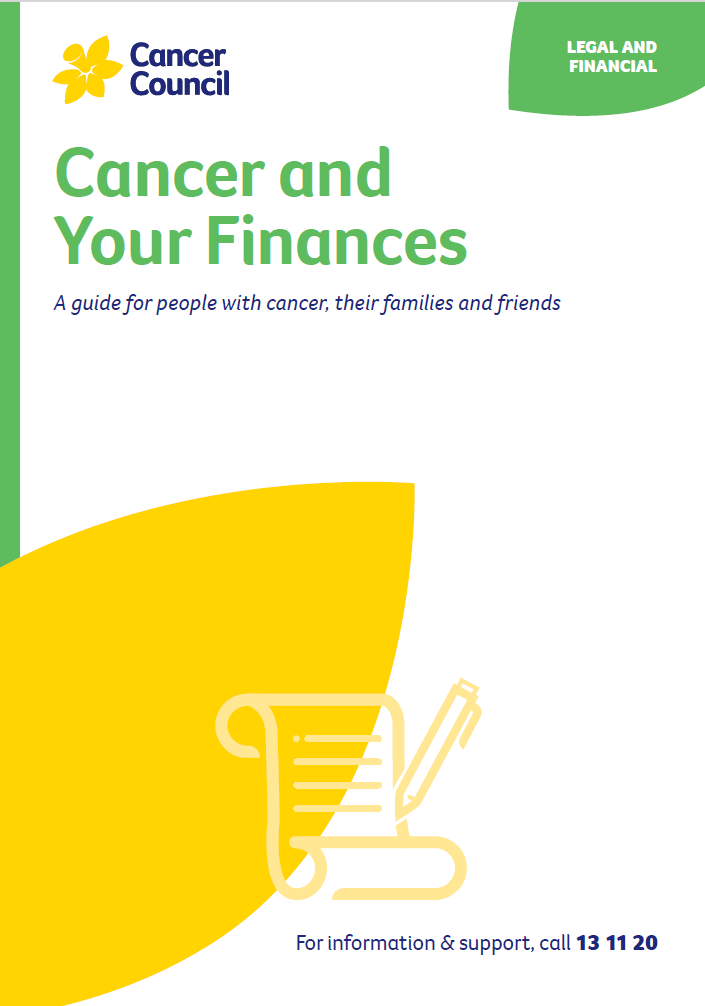- Home
- About Cancer
- Coping with a diagnosis
- Cancer and your finances
- Reducing debts and expenses
- Education expenses
Education expenses
If cancer has caused you financial hardship, you may be able to come to some arrangement regarding school fees or it may be possible to delay (defer) repayment of your education (HECS–HELP) debt. Special grants can help young people to continue their education.
Learn more about:
- Negotiating school fees
- Applying for an education grant
- Deferring HECS-HELP debts
- Video: Debts and everyday expenses
Negotiate school fees
Fees are not compulsory in public schools, but it’s a good idea to contact the school to discuss payment of voluntary contributions. Many private and independent schools are willing to make arrangements for parents experiencing unexpected hardship who cannot pay school fees in the short term. Ask for written confirmation of any changes you negotiate.
Once you become aware that your financial situation has changed, get in touch with the school principal straightaway to discuss your options.
These may include:
- investigating scholarships or bursaries that cover school fees and other expenses
- negotiating a payment plan
- requesting a temporary suspension of your fees.
Apply for an education grant
Young people affected by cancer may be able to access special grants to help them pay for education and training:
- Redkite provides grants to young people aged up to 18.
- Ronald McDonald House Charities offers the Charlie Bell Scholarship program to people aged 15–20.
- Young Carers Network, part of Carers Australia, provides the Young Carer Bursary Program to carers aged 12–25.
Defer HECS–HELP debts
You may have a HECS–HELP debt under the Higher Education Contribution Scheme (HECS) or the Higher Education Loan Program (HELP). If you are having trouble repaying the debt, you can apply to the Australian Tax Office (ATO) to defer or reduce your repayments.
You will need to show that making the repayments would cause serious hardship (e.g. would leave you unable to provide food, accommodation, clothing, medical treatment or other necessities for you or your family) or that there are other special reasons such as having a serious illness.
The ATO may also ask you to provide details of your income and expenses as well as a copy of your most recent pay slip.
Learn more about financial support.
If your application is successful, you will not need to make any repayments until the next financial year. If you want to defer your repayments for another year, you will need to reapply. There are time limits that apply. To defer your HECS–HELP repayments, download and complete an application form. Call 1300 650 225 or visit ato.gov.au.
→ READ MORE: Loans and credit cards
Video: Debts and everyday expenses
Podcast: Coping with a Cancer Diagnosis
Listen to more of our podcast for people affected by cancer
More resources
HWL Ebsworth Lawyers, Sydney, NSW; Leigh Aitken, Consumer; Mary Bairstow, Senior Social Worker, Cancer Centre, Fiona Stanley Hospital, WA; Lynette Brailey, Team Leader Financial Counselling, Cancer Council NSW; Corinne Jones and Siew Tan, Financial Counsellors, Cancer Council VIC; Penny Jacomos, Social Worker, Asbestos Diseases Society of South Australia, SA; Dr Deme Karikios, Head of Department – Medical Oncology, Nepean Cancer and Wellness Centre, Nepean Hospital, NSW; Valerie Parsons, 13 11 20 Consultant, Cancer Council SA; Viridian Financial Group, Melbourne, VIC.
View the Cancer Council NSW editorial policy.
View all publications or call 13 11 20 for free printed copies.

